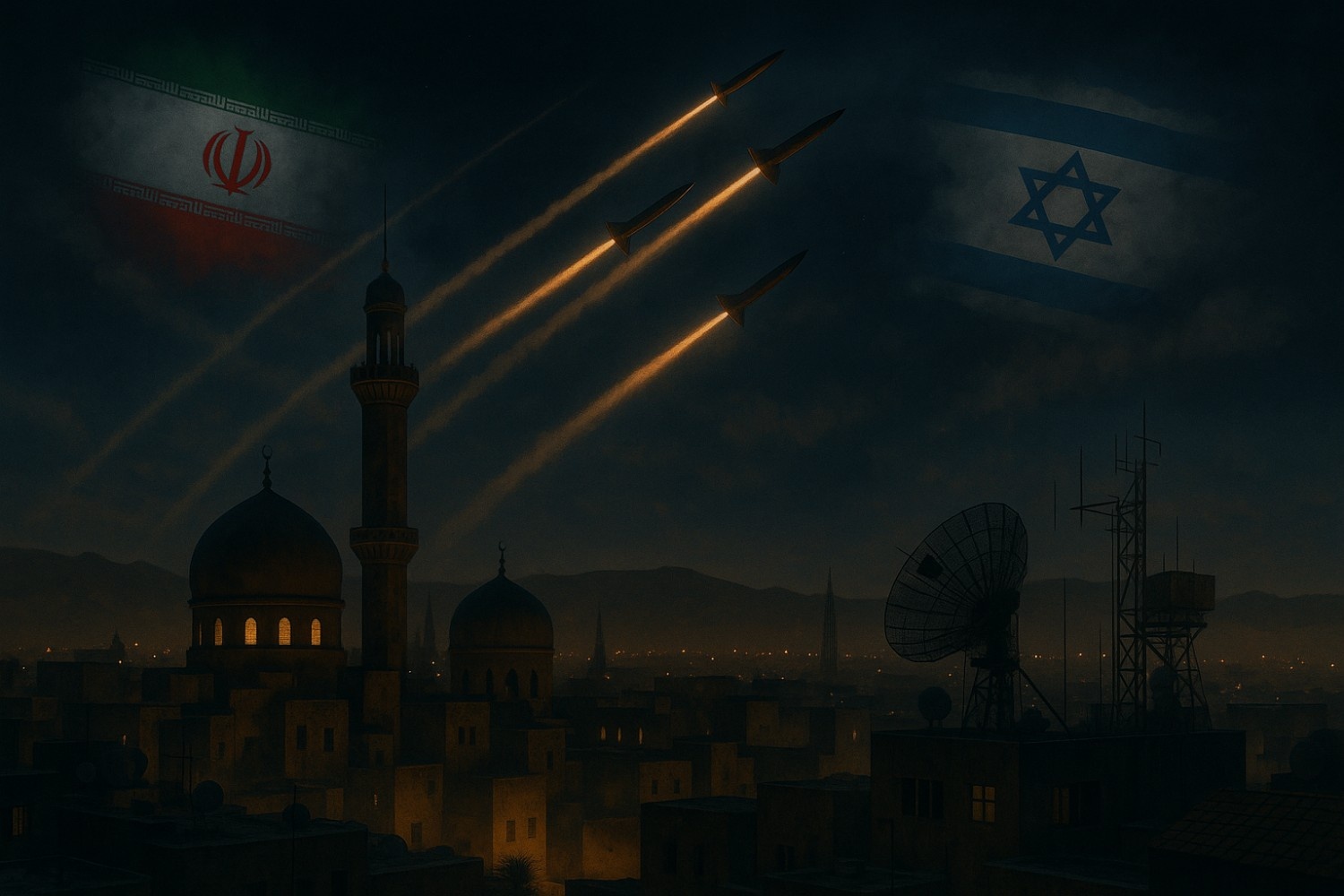In recent weeks this region of the Middle East has witnessed an alarming rise in military conflict. Iran launched missile attacks in reaction against earlier Israeli attacks. These events create the fear, confusion and uncertainty across the region and far more than just political disputes and pose serious risks security and peace for a large number of individuals living in Saudi Arabia as well as across the region. We will explain the current situation, what it means and how it could affect countries like Saudi Arabia.
Timeline of Recent Events
Israeli forces are believed to have engaged in airstrikes on Iranian defense targets inside Syria and also killed a number of people belonging to Iran’s Islamic Revolutionary Guard Corps (IRGC) which prompted Tehran to view this incident as a serious act of provocation.
Iran responded with numerous missile and drone attacks aimed at Israeli military and intelligence facilities – dubbed Operation Honest Promise 3 by Iranian officials. It was an unprecedented and blatant attacks to date on Israeli territory.
Three victims were killed and a lot more were injured in the attacks on Israel and resulted in sirens ringing all over Israeli cities, causing civilians to shelter in bunkers. While Israeli defense systems stopped certain missiles with success however, some caused significant destruction.
Israeli airstrikes continue to increase tensions in a already tense situation. Neither one seems willing to back away from fighting one another.
Strategic Motives Behind Iran’s Response
Iran has many reasons that explain their fervent response. The reasons include:
- Political pressure and nationalism The Iranian government is under domestic pressure to retaliate whenever attacked forces strike Iranian territory.
- The military message Iran is determined to show its power through targeted attacks on both allies and enemies by sending messages to warn people not to undervalue it.
- Iran has long been seeking to increase its influence in the region of Syria, Iraq and Lebanon The strikes are a way to accomplish this goal.
Iran has warned other countries not to join Israel in this war which includes countries within the Gulf and the Gulf region – raising concerns Saudi Arabia and its neighbors.
Global and Regional Reactions
The world community is paying close attention to Israel. The US has affirmed its support for Israel and warned Iran against launching more attacks On the other hand countries such as Russia and China have been promoting peace.
Arab countries have adopted a variety of opinions. While some have criticized Iran’s actions, other nations have called for both sides to avoid violence.
Saudi Arabia has called for calm and peaceful solutions in a statement that stresses how a the ongoing conflict could be detrimental to all parties involved as well as the need to protect civilians and prevent further bloodshed. Officials from Riyadh have also emphasized the need to ensure the safety of civilians.
United Nations and Arab League representatives have released statements that urge each other to stay clear of any further escalating violence and resume diplomacy as soon as is possible.
What Do the Middle Eastern States Stand to Lose?
The tension between Iran and Israel is getting more severe, posing risks not only to these two countries but for the entire Middle East region. Here’s why:
- Wider War: Should war escalate, more lives could be lost and more damage result. This could lead to multiple countries such as Lebanon, Iraq and Syria getting involved, which could lead to additional destruction and deaths.
- Oil and Trade: Gulf region, in particular Saudi Arabia, plays a vital role in the world oil production. A prolonged conflict could harm markets, increase prices further and disrupt international trade.
- Security Risks: One possible security threat is from drones or missiles accidentally hitting other countries in the vicinity, creating alarms for the residents of those countries and raising concerns about the safety of everyone.
- Humanitarian Crisis: In the event that war is declared and thousands of refugees are forced to leave their homes, triggering the refugee crisis to affect countries like Jordan, Lebanon and even portions of Saudi Arabia.
Many leaders have called for peace, but the price of a new war is too high.
Forward Scenarios
What are the next steps to be? There are a variety of possible results:
- Temporary halt of attacks: In the event of global pressure, the two sides can agree to stop all attacks in order to allow the opportunity for talks, and also reduce the risk of conflict. This will allow talks to go on smoothly, while reducing the risk of war.
- Further conflict: If neither side backs down, violence could increase quickly, eventually leading to a full-scale conflict involving other countries and causing massive damage.
- Diplomatic discussions: Qatar or Oman might try to serve in the role of mediators for Iran and Israel and encourage peace talks via mediation or inviting Saudi Arabia’s participation.
- Nuclear tensions: Iran’s nuclear program could be a new cause of concern A new war could increase the fears about nuclear weapons within the Middle East region.
Diplomacy is our only hope but tensions and political pressures could undermine efforts to achieve peace.
Frequently Asked Questions
Q What is the reason Iran attack back Israel right now?
The answer is: Iran was responding to Israeli airstrikes that killed their soldiers in Syria The attack designed to be a powerful signal and a demonstration.
Q: Is Saudi Arabia at Risk?
A The truth is that no threats of any kind have been made in the past against Saudi Arabia directly, however increasing tensions raise the risk for the region, and authorities closely monitor the unfolding events in the region.
Q: Can this become a full-blown war?
A: Absolutely, if both sides continue to fight at each other, and more nations join – in this scenario, it may escalate into conflict.
Q: What is the role Israel and the United States and Israel have?
A: The answer is Israel is a beneficiary of US support and has the ability to request diplomatic or military aid in times of need. This complicates issues more and adds layers to any conflict.
Q. Is it true that Saudi citizens warned against traveling?
A: Currently there aren’t any major warnings for Saudi citizens who travel between or within Saudi Arabia However, it is prudent to be aware of the latest announcements and news issued by the administration of Saudi Arabia.
Conclusion
The ongoing conflict that is raging between Iran and Israel is a serious threat in the direction of Middle Eastern peace. As both parties engage in a war of words as well as threats to each other, there is the possibility of war breaking out further in the region, despite many officials calling for peace. But tensions persist.
Saudis and Arabs across the region need to be alert and vigilant during this crucial time, which could affect the direction it takes in the future.
Stay informed with the latest updates shaping the region. For real-time insights and analysis that matter to Saudis, keep following Know Saudi.




